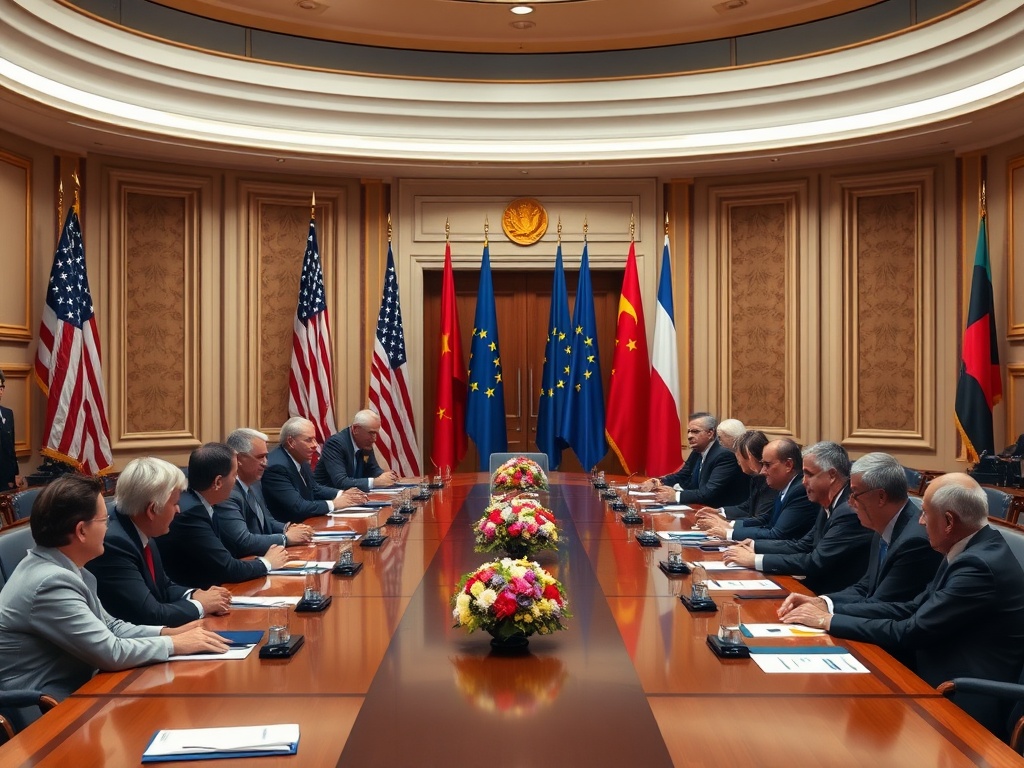Reflecting on Four Years Since Biden’s “America is Back” Speech
Today marks the fourth anniversary of President Joe Biden’s landmark speech declaring that “America is Back.” This seminal address, delivered at the 2021 Munich Security Conference, was his first foray into foreign policy as president. In stark contrast to the previous administration, Biden asserted that “the transatlantic alliance is back,” emphasizing a forward-looking approach to international relations.
However, the landscape of global politics has dramatically shifted over the past four years. Vice President JD Vance’s recent speech in Munich last Friday sharply criticized Europe and hinted at alliances with far-right political factions on the continent. This rhetoric raises concerns about the future of US security guarantees that have maintained peace for nearly eight decades.
Next week, UK Prime Minister Sir Keir Starmer will embark on a pivotal visit to Washington for face-to-face discussions with former President Donald Trump. These talks could prove to be the most consequential dialogues between the two nations since the end of World War II. Yet, they are fraught with peril, particularly following Starmer’s assertion that the UK is facing a “once-in-a-generation moment for our national security.” While he expresses his readiness to deploy UK forces in Ukraine to “guarantee the security of our continent and our country,” he will be engaging with a US President who appears reluctant to bring Ukraine, or even European nations, to the negotiating table.
The current US-Russian delegations are convening in Riyadh to discuss pressing issues, including the situation in Ukraine. Vance’s speech has ignited a wave of concern across Europe, prompting a growing realization that the United States may need to be approached as a potential adversary rather than a steadfast ally in the face of Russian aggressions. This sentiment has been brewing among European leaders for some time.
Just hours after Biden’s 2021 address concluded, French President Emmanuel Macron cautioned that Europe should begin pursuing “strategic autonomy,” signaling a gradual shift away from reliance on the US. Similarly, then-German Chancellor Angela Merkel expressed reservations, suggesting that Europe’s interests with Washington “will not always converge.” Unfortunately, the notion of alignment has unraveled much more quickly than anticipated.
While Biden skillfully united NATO partners in support of Ukraine, his administration has also demonstrated an alarming inconsistency. The chaotic US military withdrawal from Afghanistan in August 2021 shocked European leaders, highlighting both the incompetence and the rapidity with which the Taliban regained control.
Biden’s protectionist trade policies further disillusioned successive UK prime ministers, extinguishing hopes for a lucrative post-Brexit trade deal with the US. In 2021, Biden’s decision to exclude France from a significant defense agreement to supply Australia with nuclear-powered submarines led to diplomatic tensions, prompting him to apologize and insist France remained an “extremely valued partner” despite the administration’s untrustworthy actions.
Every day since those initial warnings have passed, time has been wasted in preparing for a crisis that now feels increasingly imminent. The transatlantic relationship has undergone a notable transformation, as Washington’s approach shifts. Some analysts argue that Trump’s new demand for NATO members to allocate 5 percent of their GDP to defense (up from the previous 2.5 percent) signals the potential erosion of Article 5, the mutual defense clause that underpins the alliance.
Implications for European Security

One former US administration official remarked to The i Paper that Trump is effectively holding European security hostage, quipping that “Article 5 is now Article 5 percent. Pay up or else.” Others contend that rather than withdrawing from NATO, Trump’s strategy could dismantle the alliance incrementally through escalating demands for higher defense expenditures from member states.
European capitals are now faced with the urgent challenge of recalibrating their security strategies and investing heavily in defense procurement before Russian President Vladimir Putin can return his forces from Ukraine and potentially target Baltic nations like Lithuania, Latvia, or Estonia. Some military experts suggest that within just six months of Russian troops returning home, they could be redeployed for further aggression.
Starmer has warned that “the end of this war, whenever it comes, cannot merely become a temporary pause before Putin attacks again.” He faces a substantial challenge in convincing Trump that Putin cannot be trusted and poses a territorial threat to NATO allies. Starmer must also emphasize that when Putin speaks of resolving the conflict along with its root causes, it often implies a desire to push NATO forces away from Russia’s borders, thereby undermining containment efforts.
A mere month after Trump’s inauguration, NATO is in jeopardy in ways that seemed unimaginable just weeks ago. It appears that the Kremlin now views the current administration in Washington as a more reliable ally than the UK and its European counterparts. It may finally be time to reconsider the so-called “special relationship” between the White House and Number 10.




